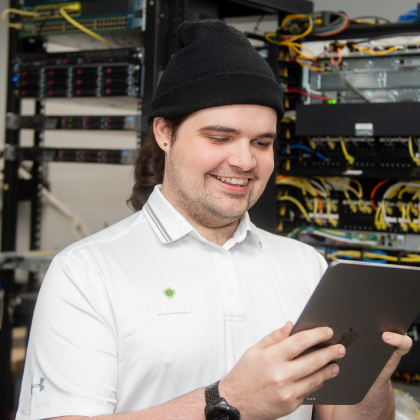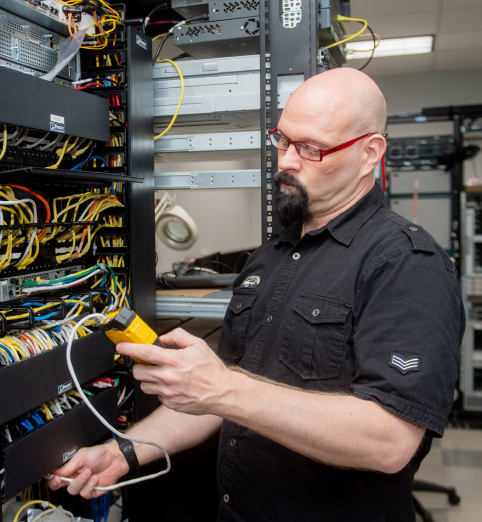If I was ever to be accused of anything, it would be unwavering consistency. And with that consistency comes my usual blog thread of welcoming our new machine overlords, especially at a time in history when all technological roads seem to lead to Artificial Intelligence (AI). After all, it’s AI that’s already starting to impact everything from online shopping, to finance, business infrastructure, and more—all designed to somehow make our lives easier. So, what’s not to drive us to think of the impending doom that AI brings forth—all foretold from the oracle that is Hollywood?
Hollywood blockbusters aside, believe me when I say that it pains me to go in this direction, but I honestly think AI is the next logical and safest step in our IT security evolution.
Now, all Skynet jokes and references aside, the one consistent truth that we as a civilization must come to terms with is that IT security is now at the heart of everything we do. Our lives have become interdependent with every aspect of technology, and it goes without saying that our digital security needs are at an all-time high.
For instance, every time we pay for something, take money out of an ATM, surf the internet, use social media, send an email, or even adjust our digital thermostats—all these become potential doorways for the bad guys.
However, it’s far more than just our daily dependencies. It’s also the overarching infrastructure upon which we have all become almost too reliant. Things like constant water and power, communications networks, food safety, and more. These are all the structures that enable us to log on, log in, and surf away to all the corners of the connected world—all without ever thinking of the looming threats lurking just around the corner.
I know that sounds alarmist—I honestly don’t mean it to be. I don’t want to be the voice of conspiracy, of impending doom, or anything else currently trending on YouTube—this is a different message. This is about embracing the machines and letting them fight our battles—at least for the most part—that will potentially take place with other machines.
Think of it this way: for the most part, the security defenses we have in place as a global society are already automated. And that’s not just IT security in the enterprise-sense of the word. It’s at every level. From out-of-the-box laptops with the latest operating systems, to mobile devices, and servers, the list goes on. Most come with firmware that’s designed to fight security threats on a basic level, and all will most likely auto-update to keep up to speed with the next evolution of threat. That’s basic machines fighting for us.
Now, let’s bring in the heavyweights: AI purpose-built to fight the big fights against the big AI in the opposite corner of the ring. Today, we see more and more companies subscribing to network-based security solutions: centralized security services that monitor the internet as a whole, not just a single company’s network. And though they still have room to evolve, that evolution is not far from being a reality.
It’s here where the Skynet-like reference may be more apt. But a Skynet set to good instead of evil—for those who get that reference, I hope you find it both funny and apt.
By centralizing IT security so that it has far greater reach and span, the knowledge that AI will use to combat attackers will grow exponentially, enabling AI to thwart potential treats. But, like any evolution, it doesn’t preclude the bad guys from using AI. This means that IT security wars will soon be fought between machines—essentially trying to out-algorithm each other in the hopes of achieving their respective goals.
So, what’s to become of us, the humans behind the machines? Nothing, really. Our jobs and roles will evolve as they usually do in IT, but like so many other centralized computing initiatives, there will always be the puppet masters for the puppets.
In the end, perhaps this war of the machines will be a little less James Cameron and a little more Guillermo del Toro—because I mean … c’mon … who doesn’t want to pilot their own giant robot?



